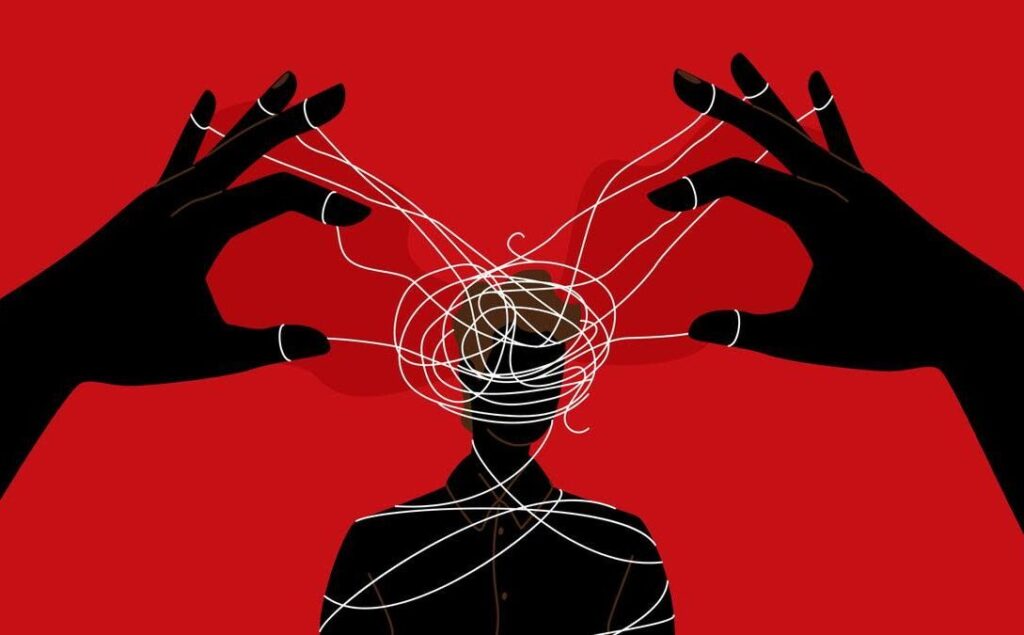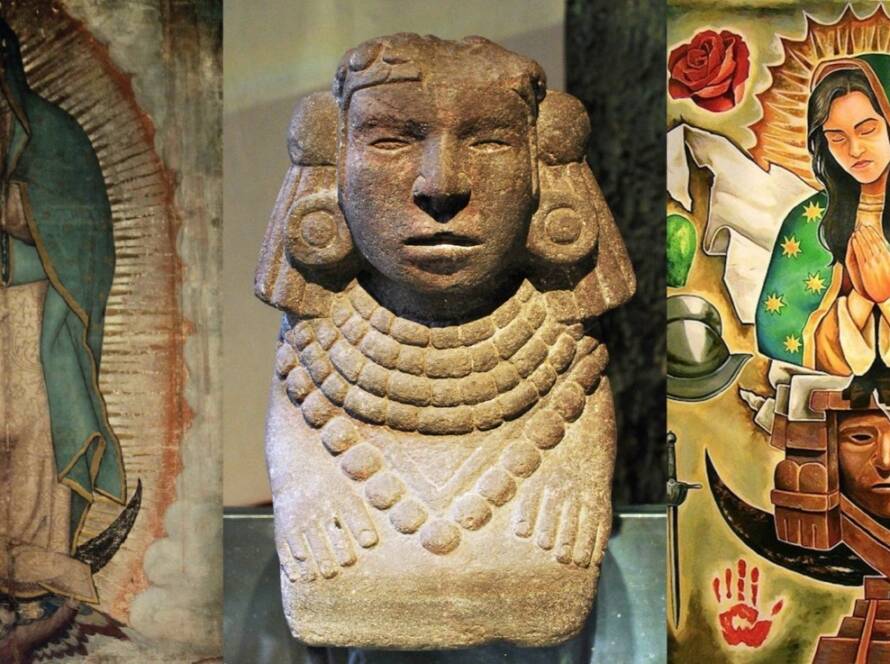Modern Idolatry in a Digital Age
In the ancient world, idolatry was straightforward. It was a golden calf forged in the desert, a statue of Baal perched on a hill, a carved figure prayed to for rain or victory.
The sin was clear: giving to a created thing the worship that belongs solely to the Creator. For the modern Christian, it’s tempting to read those Old Testament accounts with a sense of superiority. We would never bow before a statue of metal or wood. Our sanctuaries are clean, our theology sound. Yet, the human heart—wired for worship, desperate for something to anchor its hope—has not changed.
The prophet’s cry echoes through the centuries, just as relevant now as it was then: “My people have committed two evils: they have forsaken me, the fountain of living waters, and hewed out cisterns for themselves, broken cisterns that can hold no water” (Jeremiah 2:13).
The idols have simply traded their gilt for a more sophisticated veneer. They are digital, financial, and social, but their function remains identical: they demand our ultimate devotion and promise a salvation they can never deliver.

What Makes an Idol? The Heart of the Matter
From a Christian perspective, an idol is not merely a primitive statue. It is anything that takes the place of God in our lives. It is any person, concept, possession, or pursuit that becomes the central focus of our identity, security, significance, and happiness.
The First Commandment, “You shall have no other gods before me” (Exodus 20:3), is not a demand for exclusive religious affiliation, but for exclusive worship and trust. An idol is what we daydream about, what we fear losing most, and where we instinctively turn for comfort. When a good thing becomes a god thing, it becomes an idol.

The Pantheon of the 21st Century
Our modern world has erected a new pantheon, and we are often unwitting worshippers at its altars.
The Idol of Self. This is perhaps the chief deity of our age. Its mantra is self-fulfillment, self-expression, and self-actualization. Its worship involves curating our personal brand, prioritizing our feelings above all else, and living as the autonomous author of our own truth. The gospel, in stark contrast, calls us to die to self and find our true life in Christ (Galatians 2:20). The idol of self tells us to “follow your heart,” while Scripture warns that “the heart is deceitful above all things” (Jeremiah 17:9).
The Idol of Addiction. This is one of the most visceral and enslaving forms of idolatry. Whether it’s pornography, substance abuse, compulsive shopping, or even extreme thrill-seeking, addiction functions as a false savior. We turn to it for comfort, escape, numbness, or a fleeting high, making it a functional god that we serve with our bodies, minds, and time. It promises relief and pleasure but delivers only shame, isolation, and bondage. The apostle Paul describes this perfectly: “I have the desire to do what is good, but I cannot carry it out. For I do not do the good I want to do, but the evil I do not want to do—this I keep on doing” (Romans 7:18-19). The object of addiction becomes a cruel master that usurps God’s role as our source of comfort and strength.

The Idol of Success and Achievement. Our value is often measured by our title, our salary, the size of our home, or the prestige of our accomplishments. We sacrifice our health, our families, and our Sabbath rest on the altar of “more.” We worship the god of productivity, seeking validation not from our identity in Christ, but from our output and accolades. This idol promises significance but delivers only burnout and the anxiety of never being enough.
The Idol of Romance and Relationships. We are sold a cultural myth that a soulmate will complete us, solve our deepest insecurities, and provide everlasting happiness. This places an impossible burden on another fallen human being and makes a relationship an object of worship. It distorts the beautiful gift of love into a false savior, replacing the only One who can truly satisfy the longing of the human soul.
The Idol of Technology and Connectivity. Our smartphones are modern-day pocket idols. We look to them for validation (likes, shares, comments), escape from discomfort, and a constant stream of novelty. We fear being offline, missing out, or being disconnected. This constant digital connection can starve our connection to God, replacing quiet prayer with endless scrolling, seeking a kingdom of content rather than the Kingdom of God.
The Idol of Ideology. Whether political, social, or economic, we can elevate a human system or cause to an ultimate, salvific level. We look to it to create a perfect world, to right all wrongs, and to provide a coherent framework for life. While justice and wisdom are biblical mandates, any ideology that demands absolute allegiance and promises a utopia apart from Christ has become an idol.
- Sports, Music, and Personal AI Chatboxes. If your love for sports, Music artists or personal AI assistants is causing your spiritual life to fail, you need to check your priorities.

Breaking the Idols: Returning to the True God
Recognizing our idols is the first, convicting step. The solution is not simply to try harder to stop worshipping them. A vacuum in the human heart will always be filled. The only way to dethrone a false god is to enthrone the true one.
Cultivate Awareness and Honesty. We must prayerfully examine our lives. What do I fear? What do I daydream about? Where do I spend my time and money? The answers often reveal our functional gods. Invite the Holy Spirit to search your heart (Psalm 139:23-24).
Reorient through Worship. We displace lies with truth. Regular, intentional worship—through prayer, Scripture reading, singing, and fellowship—recalibrates our hearts. It reminds us of God’s true character: His sovereignty, goodness, and all-sufficiency. We worship our way out of idolatry.
Embrace Contentment in Christ. The antidote to the idol of “more” is learning the secret of being content in any situation through Christ who strengthens us (Philippians 4:11-13). Our significance is not earned; it is received as a gift through grace.
Put Technology in its Place. Designate tech-free times and spaces. Use social media intentionally, not passively. Choose to engage in real-world relationships and hobbies that reflect God’s creativity.
Seek Freedom in Community. This is especially crucial for idols of addiction. We were not meant to fight our battles alone. Honest confession, biblical accountability, and professional Christian counseling are God-given means of grace to break the chains of addictive idolatry (James 5:16).
The ancient struggle is still our own. But the hope remains unchanged. Our hearts are idol factories, but they are also fields where the Holy Spirit plants truth. The God of the Bible is not a distant deity demanding obeisance; He is a loving Father who invites us to exchange our broken, leaky cisterns for the boundless, life-giving fountain of living water that is Himself. In the end, our battle against modern idolatry is simply the journey of turning from everything that promises life and returning to the only One who is Life itself.
Below is a powerful, humble prayer for deliverance from idolatry — ancient and modern — to return fully to Adonai’s presence and truth.
O Lord, my God,
You alone are worthy of all worship.
You are the Creator of heaven and earth,
the One who formed me and breathed life into my soul.
I confess, Lord, that too often my heart wanders.
I have built altars in places that were never Yours —
to comfort, to pride, to wealth, to the opinions of others.
I have bowed, at times, not with my knees, but with my desires.
Forgive me, Adonai.
Tear down the idols that live in secret places of my heart —
the ones I’ve named “success,” “pleasure,” or “control.”
Deliver me from the modern idols that disguise themselves as light:
screens that steal my time,
voices that glorify the self,
and fears that chain me to this world instead of lifting me toward You.
Lord, I renounce every false god,
every habit, every pursuit that takes Your place.
You are the only God who saves,
the only King who reigns forever.
Let my heart become Your sanctuary,
not a museum of distractions.
As You broke the power of Baal and silenced the idols of Egypt,
break the power of sin that competes for my devotion.
Teach me to see beauty only in Your holiness,
and to find joy only in Your presence.
Make my soul thirst for Your Word,
and my spirit hunger for Your truth.
Holy Spirit, dwell in me fully.
Let no counterfeit light deceive me again.
Be my portion, my treasure, my only desire.
And if I ever start to build another idol,
let Your fire of conviction fall swiftly —
so I may return to You,
pure, faithful, and whole.
You alone, O Lord, are my God —
the One true King of heaven and earth,
and I will serve no other.
In the name of Jesus Christ,
who conquered every false power and restored us to the Father,
Amen.

Biblical Study: The Anatomy of Modern Idolatry
This study is designed to examine the claims of the article through the lens of Scripture, moving from definition to identification, and finally to the biblical solution.
The article defines an idol as “anything that takes the place of God in our lives.” This is a thoroughly biblical concept that goes far beyond physical statues.
Key Text: Exodus 20:3-5 (The First Commandment)
“You shall have no other gods before me. You shall not make for yourself a carved image, or any likeness of anything that is in heaven above, or that is in the earth beneath, or that is in the water under the earth. You shall not bow down to them or serve them…”
Analysis: This commandment establishes God’s exclusive right to humanity’s worship and allegiance. The prohibition against “other gods” (rival deities) is linked with “carved images” (physical idols), but the primary concern is the internal posture of the heart—the “bowing down” and “serving.” This implies that idolatry is an act of the heart that assigns ultimate value to something other than God.
Key Text: Colossians 3:5
“Put to death therefore what is earthly in you: sexual immorality, impurity, passion, evil desire, and covetousness, which is idolatry.”
Analysis: The Apostle Paul makes a stunning connection. Covetousness (Greek: pleonexia) is an insatiable desire for more—more possessions, status, pleasure. By calling this idolatry, Paul reveals that idolatry is fundamentally a disorder of desire. It is seeking from created things (money, sex, power) what only God can provide (security, satisfaction, significance).
Theological Conclusion: Biblically, idolatry is:
A Transfer of Trust: Shifting our ultimate trust from God to someone or something else.
A Misdirection of Worship: Giving the devotion, energy, and focus due to God to a created object.
A Matter of the Heart: It is an internal reality that often manifests in external behaviors.
The article’s “pantheon” aligns with patterns of sin repeatedly condemned throughout Scripture.
The Idol of Self (Self-Autonomy):
Biblical Parallel: The Tower of Babel (Genesis 11:4). The people said, “…let us make a name for ourselves.” Their goal was to achieve renown and security apart from God.
New Testament Reflection: Philippians 2:3-4 warns against “selfish ambition or conceit” and calls us to humility, looking to the interests of others, following Christ’s example of self-emptying.
The Idol of Addiction (Mastery by Desire):
Biblical Parallel: The Nation of Israel’s addiction to idolatry itself. Despite knowing the truth, they repeatedly returned to Baal and Asherah for fertility and rain—seeking provision from a source God had condemned. This cycle of sin, consequence, crying out, and deliverance in the book of Judges is a classic pattern of addiction.
New Testament Reflection: Romans 6:16-19 speaks directly to this: “Do you not know that if you present yourselves to anyone as obedient slaves, you are slaves of the one whom you obey, whether of sin, which leads to death, or of obedience, which leads to righteousness?” Addiction is slavery to a master that is not Christ.
The Idol of Success/Mammon (Wealth):
Biblical Parallel: The Rich Young Ruler (Matthew 19:16-22). He desired eternal life but was unwilling to dethrone his true god—his wealth. Jesus identified his wealth as the idol that kept him from true discipleship.
Key Text: Matthew 6:24: “No one can serve two masters… You cannot serve God and money [mammon].” Jesus personifies wealth as a rival master, a competing object of service and devotion.
The Idol of Ideology (Human Wisdom):
Biblical Parallel: The Corinthian Church (1 Corinthians 1:18-31). The church was dividing over allegiance to different leaders (1 Cor. 1:12) and prided itself on human wisdom and rhetoric. Paul condemns this, stating that the wisdom of the world is folly before God and that Christ alone is our wisdom and our boast.
The article correctly states that the solution is not mere behavior modification but a fundamental reorientation of the heart.
The Diagnosis: The Idol Factory of the Heart
Key Text: Jeremiah 17:9: “The heart is deceitful above all things, and desperately sick; who can understand it?”
Key Text: Ezekiel 14:3-5: God speaks of elders who “have taken their idols into their hearts.” This shows that idols are not just external but are deeply embedded in our inner being. Our hearts are naturally inclined to create idols.
The Solution: Exchanging the Lie for Truth
The biblical solution is repentance (turning from the idol) and faith (turning to the living God).Revelation: We must see the glory of God in the face of Christ (2 Corinthians 4:6). The beauty and sufficiency of God, revealed in Scripture, exposes the emptiness and falsity of our idols.
Repentance: This is a change of mind that leads to a change of direction. It is specifically turning from trusting and serving the idol.
Replacement: We actively replace the lie of the idol with the truth of God. This is the practice of “taking every thought captive to obey Christ” (2 Corinthians 10:5).
Community: We cannot do this alone. Galatians 6:1-2 calls us to “restore [one another] in a spirit of gentleness” and to “bear one another’s burdens.” Breaking idolatrous patterns requires the ministry of the Body of Christ.
The Power: The Gospel of Grace
Ultimately, we are freed from idolatry not by our own willpower but by grace. Jesus Christ fulfilled the First Commandment perfectly on our behalf. He alone worshipped the Father with his whole heart, soul, mind, and strength. Through faith, his perfect record is credited to us. Furthermore, on the cross, he took upon himself the punishment for our idolatry. Our forgiveness and our power to change come from union with Christ, through the indwelling Holy Spirit who sanctifies us and redirects our affections toward God.Conclusion of the Study:
The article’s analysis is deeply rooted in a biblical worldview. The forms of idolatry may be modern, but the sinful heart condition is ancient. The consistent witness of Scripture is that humanity is perpetually prone to exchange the truth about God for a lie (Romans 1:25). The only lasting cure is the gospel of Jesus Christ, which liberates us from slavery to false gods and empowers us to worship the one true God in spirit and in truth.




